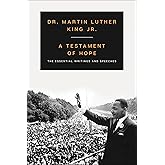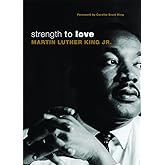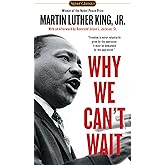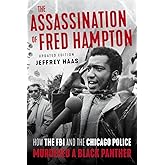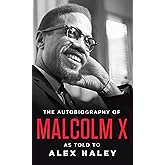
Enjoy fast, free delivery, exclusive deals, and award-winning movies & TV shows with Prime
Try Prime
and start saving today with fast, free delivery
Amazon Prime includes:
Fast, FREE Delivery is available to Prime members. To join, select "Try Amazon Prime and start saving today with Fast, FREE Delivery" below the Add to Cart button.
Amazon Prime members enjoy:- Cardmembers earn 5% Back at Amazon.com with a Prime Credit Card.
- Unlimited Free Two-Day Delivery
- Streaming of thousands of movies and TV shows with limited ads on Prime Video.
- A Kindle book to borrow for free each month - with no due dates
- Listen to over 2 million songs and hundreds of playlists
- Unlimited photo storage with anywhere access
Important: Your credit card will NOT be charged when you start your free trial or if you cancel during the trial period. If you're happy with Amazon Prime, do nothing. At the end of the free trial, your membership will automatically upgrade to a monthly membership.
Buy new:
-55% $9.83$9.83
Ships from: Amazon Sold by: Babs Books
Save with Used - Good
$7.92$7.92
Ships from: Amazon Sold by: GREENWORLD GOODS

Download the free Kindle app and start reading Kindle books instantly on your smartphone, tablet, or computer - no Kindle device required.
Read instantly on your browser with Kindle for Web.
Using your mobile phone camera - scan the code below and download the Kindle app.

Image Unavailable
Color:
-

-
-
- To view this video download Flash Player


 Audible sample
Audible sample Follow the authors
OK
The Autobiography of Martin Luther King, Jr. Paperback – January 1, 2001
Purchase options and add-ons
Martin Luther King: the child and student who rebelled against segregation. The dedicated minister who questioned the depths of his faith and the limits of his wisdom. The loving husband and father who sought to balance his family’s needs with those of a growing, nationwide movement. And to most of us today, the world-famous leader who was fired by a vision of equality for people everywhere.
Relevant and insightful, The Autobiography of Martin Luther King, Jr. offers King’s seldom disclosed views on some of the world’s greatest and most controversial figures: John F. Kennedy, Malcolm X, Lyndon B. Johnson, Mahatma Gandhi, and Richard Nixon. It paints a moving portrait of a people, a time, and a nation in the face of powerful change. And it shows how Americans from all walks of life can make a difference if they have the courage to hope for a better future.
- Print length400 pages
- LanguageEnglish
- PublisherWarner Books
- Publication dateJanuary 1, 2001
- Dimensions6 x 1.25 x 9 inches
- ISBN-100446676500
- ISBN-13978-0446676502
Book recommendations, author interviews, editors' picks, and more. Read it now
Frequently bought together

More items to explore
From the Publisher

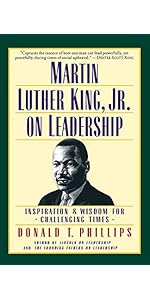
Martin Luther King, Jr., on Leadership: Inspiration and Wisdom for Challengin...
|
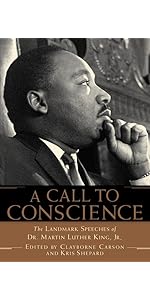
A Call to Conscience: The Landmark Speeches of Dr. Martin Luther King, Jr.
|

Sink: A Memoir
|

Bet on Black: The Good News about Being Black in America Today
|
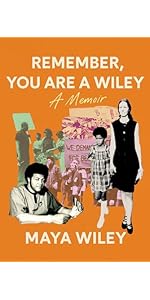
Remember, You Are a Wiley
|
|
|---|---|---|---|---|---|
| Customer Reviews |
4.7 out of 5 stars 114
|
4.8 out of 5 stars 252
|
4.3 out of 5 stars 117
|
4.6 out of 5 stars 118
|
4.4 out of 5 stars 79
|
| Price | $10.69$10.69 | $14.08$14.08 | $14.03$14.03 | $15.99$15.99 | $14.99$14.99 |
Product details
- Publisher : Warner Books; Reprint edition (January 1, 2001)
- Language : English
- Paperback : 400 pages
- ISBN-10 : 0446676500
- ISBN-13 : 978-0446676502
- Item Weight : 1.1 pounds
- Dimensions : 6 x 1.25 x 9 inches
- Best Sellers Rank: #43,347 in Books (See Top 100 in Books)
- #40 in Civil Rights & Liberties (Books)
- #85 in Political Leader Biographies
- #154 in Black & African American Biographies
- Customer Reviews:
About the authors

Dr. Martin Luther King, Jr. (1929–1968), Nobel Peace Prize laureate and architect of the nonviolent civil rights movement, was among the twentieth century’s most influential figures. One of the greatest orators in U.S. history, King also authored several books, including Stride Toward Freedom: The Montgomery Story, Where Do We Go from Here: Chaos or Community?, and Why We Can’t Wait. His speeches, sermons, and writings are inspirational and timeless. King was assassinated in Memphis, Tennessee, on April 4, 1968.

I am a historian who teaches at Stanford University, where I also serve as founding director of the Martin Luther King, Jr., Research and Education Institute. My latest book -- Martin's Dream: My Journey and the Legacy of Martin Luther King, Jr. -- is a memoir of my experiences during the half century since I attended the 1963 March on Washington.
The late Mrs. Coretta Scott King selected me in 1985 to edit and publish the papers of her late husband and, since then, I have devoted most of my professional life to the study of Martin Luther King, Jr., and the movements King inspired. Under my direction, the King Papers Project, a component of the King Institute, has produced six volumes of a definitive, comprehensive edition of speeches, sermons, correspondence, publications, and unpublished writings. I have also edited numerous other books based on King's papers.
A member of Stanford's department of history since receiving my doctorate from UCLA in 1975, I have also served as visiting professor or visiting fellow at American University, the University of California, Berkeley, Duke University, Emory University, Harvard University, the Center for the Advanced Study in the Behavioral Sciences at Stanford, the L'Ecole des Hautes Etudes en Sciences Sociales in Paris, and at Morehouse College in Atlanta, where during 2009 I was Martin Luther King, Jr. Distinguished Professor and Executive Director of that institution's King Collection.
My writings reflect not only my research about King but also my undergraduate civil rights and antiwar activism, which led me to appreciate the importance of grassroots political activity as well as visionary leadership in the African-American freedom struggle. My first book, In Struggle: SNCC and the Black Awakening of the 1960s, published in 1981, is a study of the Student Nonviolent Coordinating Committee, the most dynamic and innovative civil rights organization. In Struggle won the Organization of American Historians' Frederick Jackson Turner Award. My other publications include Malcolm X: The FBI File (1991). I also co-authored African American Lives: The Struggle for Freedom (2005), a comprehensive survey of African-American history.
In addition to The Papers of Martin Luther King, Jr., my other works based on the papers include The Autobiography of Martin Luther King, Jr. (1998), compiled from the King's autobiographical writings, A Knock at Midnight: Inspiration from the Great Sermons of Reverend Martin Luther King, Jr. (1998), and A Call to Conscience: The Landmark Speeches of Dr. Martin Luther King, Jr. (2001).
My writings also include a play, "Passages of Martin Luther King," which was initially produced by Stanford's Drama Department in 1993, and subsequently performed at Dartmouth College, Willamette University, the Claremont Colleges, the University of Washington, Tacoma, St. Petersburg, and other places. On June 21, 2007, the National Theatre of China performed the international premiere of "Passages" at the Beijing Oriental Pioneer Theatre, and full houses viewed the four subsequent performances of the first drama to bring together Chinese actors and African-American gospel singers. During March and April 2011, the Palestinian National Theater "Al Hakawati" presented the first Arabic production of "Passages" in East Jerusalem, with additional performances in the West Bank communities of Jenin, Nablus, Bethlehem, Hebron, Tulkarem, and Ramallah.
In addition to my books and scholarly writings publications, I have tried to bring my research and King's ideas to broader public attention. I was a senior historical advisor for a fourteen-part, award-winning, public television series on the civil rights movement entitled "Eyes on the Prize" and co-edited the Eyes on the Prize Civil Rights Reader (1991). In addition, I served as historical advisor for "Freedom on My Mind," which was nominated for an Oscar in 1995, as well as for "Chicano!" (1996), "Blacks and Jews" (1997), "Citizen King" (2004), "Negroes with Guns: Rob Williams and Black Power" (2005), and "Have You Heard from Johannesburg?" (2010) a multipart documentary about the international campaign against apartheid in South Africa.
I collaborated with the Roma Design Group of San Francisco to create the winning proposal in an international competition to design the King National Memorial in Washington, D. C., and I have served as an advisor to the King National Memorial Foundation.
In my various roles, I travel throughout the world. In addition to many European nations, I have been to China (three times), India (twice), Israel and the West Bank (four times), Kenya, Zanzibar, Tanzania, South Africa, Senegal, Morocco, Brazil, Costa Rica, Mexico, Canada, and a number of Caribbean islands.
Customer reviews
Customer Reviews, including Product Star Ratings help customers to learn more about the product and decide whether it is the right product for them.
To calculate the overall star rating and percentage breakdown by star, we don’t use a simple average. Instead, our system considers things like how recent a review is and if the reviewer bought the item on Amazon. It also analyzed reviews to verify trustworthiness.
Learn more how customers reviews work on AmazonCustomers say
Customers find this autobiography to be one of their favorite books, praising its well-written, insightful content that provides information about King's life. They appreciate the writing style, with one customer noting how the author brings the story to life, while another highlights the profound thoughts expressed. Customers describe King as a great man and courageous leader, with one review specifically mentioning his strength in bringing about social change.
AI-generated from the text of customer reviews
Select to learn more
Customers find the book to be an amazing read and one of their favorite books of all time.
"...The book is a brilliant piece of literature. Carson is careful to let the reader know what the material is and is not edited...." Read more
"...Yet those quibbles aside, this is still a fantastic book. Towards the end it gets a little dry and repetitive, but is very readable...." Read more
"...This book is excellent." Read more
"...Luther King, Jr. This is the best I have yet found and was well worth reading...." Read more
Customers find the book insightful and inspiring, providing detailed information about Martin Luther King Jr.'s life.
"The Autobiography of Martin Luther King, Jr. is an incredible work; however one needs to remember that it is not a real autobiography...." Read more
"...13- "Power, properly understood, is the ability to achieve purpose...." Read more
"Insightful glimpse into the life of a great man and crusader for justice! I also strongly recommend the autobiography of Malcom X" Read more
"Complete. Inspiring. What common quotes never tell you about the man and his unshakable faith." Read more
Customers praise the writing quality of the book, with one customer noting how the author brings the story to life, while another appreciates the author's honesty and integrity.
"...Towards the end it gets a little dry and repetitive, but is very readable...." Read more
"...a more reliable telling of events in his life since the source material is all his letters, papers, newspaper articles, and contemporaneous writing..." Read more
"...I really enjoyed learning more of his life and reading his writings...." Read more
"...This is the opposite: Dr. King wrote an amazing body of work on his own (he even writes spectacularly from jail) and it’s simply been combined into..." Read more
Customers praise this autobiography for its well-crafted narrative and deep insights into King's personality, with one customer noting how it covers both personal and public aspects of his life.
"...penned by MLK himself, in many ways this is a more reliable telling of events in his life since the source material is all his letters, papers,..." Read more
"...only 82 Amazon customer reviews at the time – and that it was compiled after his death...." Read more
"...Martin's revelations are timeless. Everyone who wants to understand America should read this book." Read more
"An inspirational well written autobiography that recreates the times and struggle of the civil rights movement as well as, impressively captures the..." Read more
Customers appreciate King's leadership, describing him as a courageous and great civil rights leader, with one customer noting his strength in bringing about social change.
"...It is the strength required to bring about social, political, or economic changes...." Read more
"Insightful glimpse into the life of a great man and crusader for justice! I also strongly recommend the autobiography of Malcom X" Read more
"...that I am just reading this comprehensive, compelling, and courageous book taken from the writings and speeches of the man himself and on another..." Read more
"...I knew that he was a great and outstanding man and leader...." Read more
Reviews with images
Top reviews from the United States
There was a problem filtering reviews. Please reload the page.
- Reviewed in the United States on January 10, 2011The Autobiography of Martin Luther King, Jr. is an incredible work; however one needs to remember that it is not a real autobiography. Like The Autobiography of Malcolm X, it was written after he died. It was assembled by the editor, Clayborne Carson, who went over King's papers both public and personnel and edited his work into a biographical format. The book received the endorsement of Coretta Scott King in 1998. The book is a brilliant piece of literature. Carson is careful to let the reader know what the material is and is not edited. When he takes Dr. King's words directly and unaltered he puts them in italics, so the reader knows for certain that he is getting pure primary material.
King is a combination of many influences though out his life, he begins by talking about his boyhood growing up in the segregated south, where his father was a preacher in the local church. Martin Luther King, Sr. was a take-no-crap-from-anyone type of guy, which was hard for a black man in the segregated south. His mother, Alberta Williams, he describes as being more of a gentle soul whom a lot of his patience would come from. As the Pastor's son he had a type of special status within the local community. He describes his first experience with racism at the age of six when his white friend told him that his (the white boy's) father would not let them be friends anymore because he was black. As the book goes on King discusses his education and how the works of different scholars and philosophers had upon his world view, whether Reinhold Niebuhr, Karl Marx or Mahatma Gandhi.
King discussed meeting his future wife, getting married, and the hard decision to go back to the segregated South. King would take the ministry at the Dexter Avenue Baptist Church, and from there he would build an activist base. He encouraged his membership to register to vote and to join the NAACP. When the now internationally famous Rosa Parks refused to get from her seat, she started a movement. The Montgomery Bus Boycott did not even start out as a movement to end segregated bussing, just as a movement for more fair treatment. It was not until the outrageous response by those in power backed by the majority of the white community that caused the movement to push further. The Montgomery Bus Boycott was a form of nonviolent protest that was inspired by the Mahatma Gandhi and Christian doctrine.
"As the days unfolded, however, the inspiration of Mahatma Gandhi began to exert its influence. I had come to see early that the Christian doctrine of love operating thought the Gandhian method of nonviolence was one of the most potent weapons available to the Negro in his struggle for freedom. About a week after the protest started, a white woman who understood and sympathized with the Negroes' efforts wrote a letter to the editor of the Montgomery Advertiser comparing the buss protest with the Gandhian movement in India. Miss Juliette Morgan, sensitive and frail, did not long survive the rejection and condemnation of the white community, but long before she died in the summer of 1957 the name of Mahatma Gandhi was well known in Montgomery. People who had never heard of the little brown saint of India were now saying his name with an air of familiarity. Nonviolent resistance had emerged as the technique of the movement, while love stood as the regulating ideal. In other words, Christ furnished the spirit and motivation while Gandhi furnished the method." p.67
After victory was achieved in Montgomery, King became internationally famous. This was both a blessing a curse at the same time. A blessing in the way he was now able to carry his message to a much larger audience, but a curse in the way that it set some impossible standards for him to meet in future struggles. King would travel the world eventually going to India, the home of his idol. He was very pleased by what he saw when he got there.
"That night we had dinner with Prime Minister Nehru; with us as a guest was Lady Mountbatten, the wife of Lord Mountbatten, who was viceroy of India when it received its independence. They were lasting friends only because Gandhi followed the way of love and nonviolence. The aftermath of nonviolence is the creation of the beloved community, so that when the battle is over, a new relationship comes into being between the oppressed and the oppressor." p.125
At home things were heating up, as the fifties, which had seen some very positive developments such as the Montgomery Bus Boycott and Brown v. the Board of Education, rolled into the sixties things were going to began to move at a much faster pace. Also, 1960 was a presidential election year, with two candidates John F. Kennedy and Richard M. Nixon were trying for the nation's top job.
"With Mr. Kennedy, after I looked over his voting record, I felt at points he was so concerned about being president of the United States that he would compromise basic principles to become president. But I had to look at something else beyond the man--the people who surrounded him--and I felt that Kennedy was surrounded by better people. It was on that basis that I felt that Kennedy would make the best president.
I never came out with an endorsement. My father did, but I never made one. I took this position in order to maintain a nonpartisan posture, which I have followed all along in order to be able to look objectively at both parties at all times. As I said to him all along, I couldn't, and I never changed that even after he made the call during my arrest. I made a statement of thanks, and I expressed my gratitude for the call, but in the statement I made it clear that I did not endorse any candidate and that this was not to be interpreted as an endorsement.
I had to conclude that the then known facts about Kennedy were not adequate to make an unqualified judgment in his favor. I do feel that, as any man, he grew a great deal. After he became president I thought we saw to Kennedys--a Kennedy of the first two years and another Kennedy emerging in 1963. He was getting ready to throw off political considerations and see the real moral issues. Had President Kennedy lived, I would probably have endorsed him in 1964. But, back at that time, I concluded that there was something to be desired in both candidates." p.150
As the battles raged on they moved to a new and more dangerous front, Birmingham, it was here that a great amount of the famous images of dogs and people attacked with high pressure water hoses were captured. In this fight King would be imprisoned and while in jail, he had been criticized by a letter written by a group of white clergy. King responded with his famous 'Letter from Birmingham Jail.'
"First I must confess that over the past few years I have been gravely disappointed in the white moderate. I have almost reached the regrettable conclusion that the Negro's great stumbling block in his stride toward freedom is not the White Citizen's Councilor or the Ku Klux Klanner, but the white moderate, who is more devoted to 'order' than to justice; who prefers the a negative peace which is the absence of tension to a positive which is the presence of justice, who constantly says: 'I agree with you in the goal that you seek, but I cannot agree with your methods of direct action'; who paternalistically believes he can set the timetable for another man's freedom; who lives by a mythical concept of time and who constantly advises the Negro to wait for a 'more convenient season.' Shallow understanding from people of good will is more frustrating than absolute misunderstanding from people of ill will. Lukewarm acceptance is much more bewildering than outright rejection." p.195
"You speak of our activity in Birmingham as extreme. At first I was rather disappointed that fellow clergymen would see my nonviolent efforts as those of an extremist. I began thinking about the fact that I stand in the middle of two opposing forces in the Negro community. One is a force of complacency, made up in part of Negroes who, as a result of long years of oppression, are so drained of self-respect and a sense of 'somebodiness' that they have adjusted to segregation; and in part of a few middle-class Negroes who, because of a degree of academic and economic security and because in some ways they profit by segregation, have become insensitive to the problems of the masses. The other force is one of bitterness and hatred, and it comes perilously close to advocating violence. It is expressed in the various black nationalist movement groups that are springing up across the nation, the largest and best known being Elijah Muhammed's Muslim movement. Nourished by the Negro's frustration over the continued existence of racial discrimination, this movement is made up of people who have lost faith in America, who have absolutely repudiated Christianity, and who have concluded that the white man is an incorrigible 'devil.'" p.196-7
As his work continued things started to change. King's main rival as the primary leader in the struggle for civil rights, Malcolm X, was becoming more popular. The primary difference between the two men was that Malcolm X was an advocate for violent resistance. In some ways he was a help to King, because he represented what the alternative to King's message was. However, as a proponent of violence, he attracted it in kind and otherwise alienated members of the white community who might have otherwise been sympathetic.
"Malcolm X came to the fore as a public figure partially as a result of a TV documentary entitled 'The Hate That Hate Produced.' That title points clearly to the nature of Malcolm's life and death. He was clearly a product of the hate and violence invested in the Negro's blighted existence in this nation. He, like so many of our number was a victim of the despair that inevitably derives from the conditions of oppression, poverty, and injustice which engulf that masses of our race. But in his youth, there was no hope no preaching, teaching, or movements of nonviolence. He was too young for the Garvey Movement, too poor to be a Communist--for the Communists geared their work to Negro intellectuals and labor without realizing that the masses of Negroes were unrelated to either--and yet he possessed a native intelligence and drive which demanded an outlet and means of expression. He turned first to the underworld, but this did not fulfill the quest for meaning which grips young minds. It was a testimony to Malcolm's personnel depth and integrity that he did not become an underworld czar, but turned again and again to religion for meaning and destiny. Malcolm was still turning and growing at the time of his meaningless assassination." p.267
As time went on the rise of Black Nationalism, which was abhorrent to King, was growing stronger. Even though the Civil Rights Movement had achieved incredible success, the Civil Rights Act in 1964 had been passed and was breaking down the wall of legalized segregation, some felt unsatisfied. The 'black power' movement, King felt was trying to undo what he had achieved. King began to envision a 'poor people's campaign' that would use the strategy of Civil Rights Movement to achieve economic justice for all citizens of all races. How successful he would have been is unknown because that is where his story untimely ends.
- Reviewed in the United States on September 11, 2013I bought this book for a number of reasons. Firstly, I knew precious little about the man who stands as a giant of history. I also knew little about the kind of Christianity he professed, and had heard some people scandalously say that King was in no real way a Christian (i.e. Christopher Hitchens). All I can say after reading this book is WOW - what an amazing story. I heard King's voice speaking every word of every chapter. It was like he was sitting next to you telling you the story of his life.
King was most certainly a Christian. He grew up in a Christian home, he went to Seminary, he became a minister and pastored a Church. He spoke of a personal relationship with Jesus. He depended on God for strength during difficult times, he prayed to Jesus, he worshiped Jesus, he preached about Jesus, and led a congregation of Jesus followers. If that's not Christian nothing is. Yet his theology was decidedly liberal. He was embarrassed by his fundamentalist upbringing, especially those who would check their minds in at the door of Church and stomp their feet during the service. He spoke candidly about denying the bodily resurrection of Jesus, and embracing the liberal view of man. However he was an honest man, who at times questioned his presuppositions. I was impressed how he preached a Gospel that led to action in the present world. Not just a gospel of Sunday pieties.
In story after story King recounted how he was committed to nonviolence because this was the way of Jesus (and Gandhi whom he was later influenced by). He didn't preach hatred of white people, but reconciliation, with an aim to a fully integrated society. If anyone had reason to hate it was King. His home was bombed, his friends homes were bombed, he and his family were verbally abused and threatened, he was stabbed, he was arrested more times than I can count, and was often the victim of gross injustice. Yet in all that he showed the world that he served another Lord, and preached a different Gospel. Violence, only begets more violence. My heart broke for those who suffered during the era of segregation. At times I was almost reduced to tears, reading about the horrors of what mankind has done to each other. Not only that but I finally came to understand a little of what it was like to grow up as a Black Man in a climate of racism, to suffer under such terrible injustice, disrespect and disenfranchisement. Blessed are the peacemakers like Dr King, for they will be called the children of God.
Yet there were times I felt that King's liberalism got the better of him. I felt that King's idea of heaven on earth was simply an integrated society where everyone had equal opportunity to all state services, good jobs, and so on. Yet this idea doesn't go far enough. What about personal repentance and transformation through the power of the Holy Spirit? Can non-violent action really bring this about? Does it treat the symptoms rather than the root cause of the issue? What God's kingdom coming to earth, and us anticipating it in the present, but recognizing it is a future reality? He condemned violent protest, and distanced himself from people like Malcolm X but didn't call on those who had been violent to repent and follow Jesus. Many times he simply rationalized their violence as the understandable reaction of those who had suffered for too long. He often saw the suffering of the negro community as redemptive. But that is to give the community too much power, and a job that only Jesus can truly accomplish. If King meant that through their suffering and weakness, they embodied Jesus' suffering, and pointed people more fully towards Christ, then I have no issues. King's views on poverty and military action were a little naive. Giving away surplus food from the western world to store it in the empty bellies of hungry Indian Children, is a noble thought, but nothing more than a short term solution to a systemic problem. Giving away food like that can drive down the prices of local produce and cause more harm for the local economy than good.
Yet those quibbles aside, this is still a fantastic book. Towards the end it gets a little dry and repetitive, but is very readable. If you only read one book on the Civil rights movement and it's pivotal leader, read this one.
- Reviewed in the United States on September 3, 2018Although it is not an Autobiography penned by MLK himself, in many ways this is a more reliable telling of events in his life since the source material is all his letters, papers, newspaper articles, and contemporaneous writing of people who were present to witness the various events. For me, the important parts include: (1) The Montgomery bus strike lasted over a year. These were some very determined people who walked everywhere they needed to go for over a year! (2) MLK is the kind of religious man we see way too rarely - a man who lives his beliefs every minute of every day. I am pretty stanchly anti-organized religion because of my perceptions about folks not living their beliefs at all times (which is a really, really tall order, I realize), but this book brought me back to questions my personal opinions, prejudices, and beliefs about religion and the practice thereof. (3) In their 2018 article on MLK for MLK day, the Washington Post got it wrong. They said that King was finally swaying to Malcom X's advocacy of violence to try to combat segregation and discrimination during the later part of King's life and that is just completely wrong according to the source materials set forth in this book. This book is excellent.
Top reviews from other countries
-
 YosiReviewed in Mexico on July 16, 2023
YosiReviewed in Mexico on July 16, 20231.0 out of 5 stars Usado
No me agrado que llegara dañado, parece usado. Mala experiencia
 No me agrado que llegara dañado, parece usado. Mala experiencia1.0 out of 5 stars
No me agrado que llegara dañado, parece usado. Mala experiencia1.0 out of 5 stars Yosi
YosiUsado
Reviewed in Mexico on July 16, 2023
Images in this review
-
 TentenReviewed in France on March 20, 2021
TentenReviewed in France on March 20, 20215.0 out of 5 stars À lire
Mais quelle vie!!! Il y a ce que nous raconte les livres d'histoire et le récit de Clayborne Carson: deux mondes!
 K P VineethReviewed in India on July 18, 2023
K P VineethReviewed in India on July 18, 20235.0 out of 5 stars Great Autobiography
This is about a great person who had chosen the Nonviolence as his weapon inorder to uplift the living of people who were oppressed for long years. It's about a great individual who didn't discriminated the society inorder to uplift a particular category of people. It's about a great human who had sacrificed his entire life for a particular cause to fight against the evil. The role he played in human history will remain forever. One can learn a lot for King's life i.e., inoder to achieve anything one has to be patience and show perseverance.
-
 Br André RafaelReviewed in Brazil on May 19, 2024
Br André RafaelReviewed in Brazil on May 19, 20245.0 out of 5 stars Inspirational biography!/biografia inspiradora!
This is definitely one of my favorite biographies of all times, this biography tells the story of a reverend who tries to do away with problems(especially segregationist rules in United States) and the story of the Civil Rights Movement. I personally advice anyone to read this since it's an easy-biography and as you know it's very inspirational. It's inspirational because it(the Civil Rights Movement) sought to bring equality between all citizens without segregation based on color.
TRANSLATED/Traduzido
Essa biografia é uma das minhas favoritas de todos os tempo, essa biografia conta a história de um pastor(alguém dedicado para com a igreja) que tenta eliminar problemas(especialmente leis segregacionistas) e a história do "Civil Rights Movement". Eu pessoalmente recomendo essa biografia a qualquer pessoa já que é uma biografia fácil de ler - apesar de estar em inglês - e é inspiradora. Isso é inspirador porque isso("Civil Rights Movement") buscou a igualdade entre os cidadãos sem nenhum tipo de segregação.
 J.RobertsonReviewed in Australia on May 3, 2015
J.RobertsonReviewed in Australia on May 3, 20155.0 out of 5 stars Glad I've added this to my experiences!!
Very stoked I've finally read this book. There is a lot about the ideals of man and standing for those moral beliefs that I came to respect, understand and wish to add to my own life. I praise God for his work that moved through Martin Luther King Jr. and his wife to impact a nation so much and the world over through his story. A great read and a healthy one.








